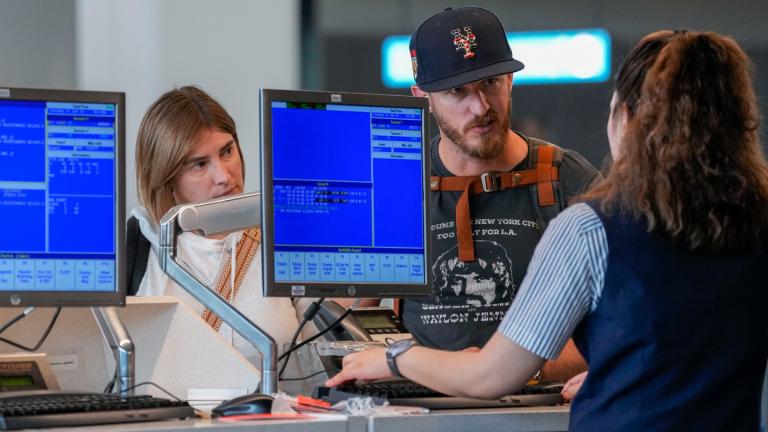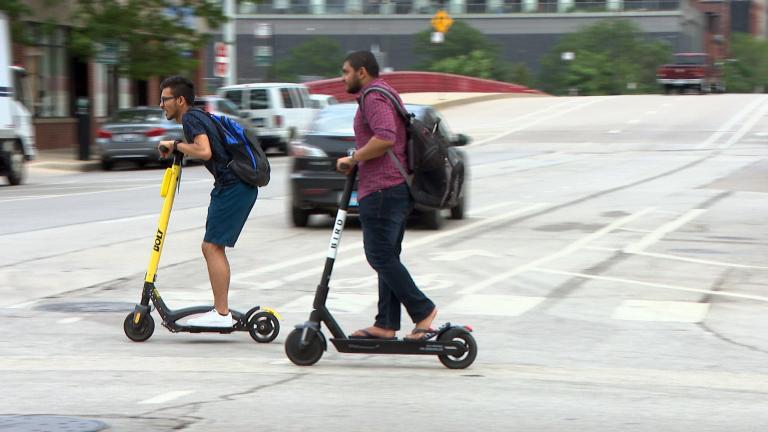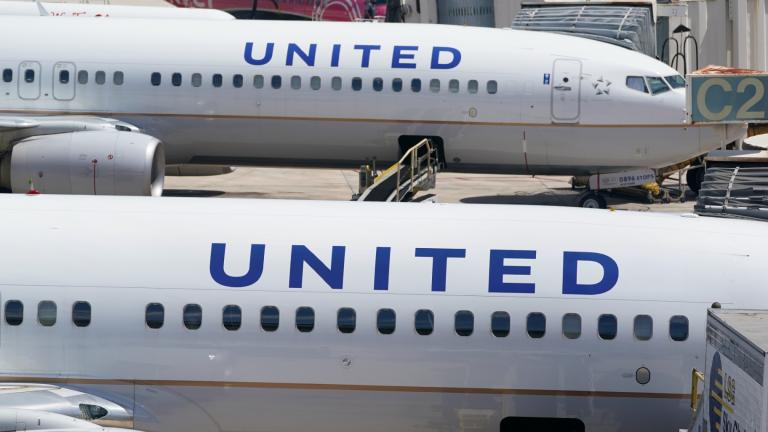Rideshare giant Uber is ringing alarm bells about the impact of a bill in Springfield that looks to become law soon. The measure would apply the so-called “common carrier” safety standard to rideshare companies. That’s the same standard for transportation methods like taxis, trains and airplanes — and would hold Uber and Lyft liable if harm comes to a passenger, not just the driver.
Uber has been pushing back hard against the common carrier proposal: emails and push notifications to customers, a reported six-figure ad buy on popular radio stations, web banners on news sites covering the General Assembly and plenty of lobbying.
But despite the campaign, Illinois Trial Lawyers Association president Patrick Salvi II said Uber’s arguments don’t hold up.
“For them to suggest that, well, fares are going to go up — well, that doesn’t really make sense, because those with whom they are competing are already common carriers,” Salvi said.
He also finds Uber’s claim that rides won’t be as widely available is hard to believe.
“I’m trying to imagine a driver that would otherwise sign up for Lyft and Uber or some other rideshare company and say, ‘Well, wait a minute, I’m considered a common carrier. I don’t want to be held to the highest duty of care,’” Salvi said.
Uber has even taken its pitch about reduced service directly to the head of the Democratic National Committee, warning of consequences for next year’s convention: “…we don’t want you caught off guard if the availability of on-demand transportation is less than anticipated as a result of the new law.”
Phil Melin, executive director of Citizens Against Lawsuit Abuse’s Illinois chapter, opposes the bill.
“We think Springfield should be focusing on trying to make life more affordable for middle (and) working class people,” he said. “When you hail a rideshare service, you’re not a customer of Uber of Lyft, they’re more like a dispatch company … the person that you’re having the common carrier relationship with is the driver.”
Melin said ITLA’s practice of donating heavily to lawmakers, including more than $400,000 to sponsors of the common carrier bill over the last three years, means the trial lawyers have unfair sway.
“When you’re out at night, paying a little extra for your ride home … it’s not just an accident,” Melin said.
Melin said he’s not accusing ITLA of breaking any laws. But Salvi said even suggesting that donating to lawmakers is pay to play is irresponsible.
“We represent people in their darkest times, when they’re hurt horribly,” Salvi said. “We of course have an interest in protecting those rights. Whereas people that are looking to do tort reform, they’d rather businesses reap all the profits (and) not have accountability.”
Groups like Melin’s have reportedly been funded by big corporations pushing for tort reform, making it harder for plaintiffs to sue companies. Melin said the Illinois chapter is made up of small businesses. There have also been many online ad buys from Uber and ITLA that are clearly targeted at lawmakers but don’t count as directly lobbying legislators.
Lyft previously opposed the bill but has since moved to a neutral position. That shift reportedly came after an amendment that delayed when the rule would take effect and would let rideshare companies operate for at least an additional five years in Illinois.
Whatever the spending on both sides, the common carrier argument has so far won the day. Versions of the bill have passed the state House and Senate. Lawmakers have until the end of the week to work out a final version and send it to the governor.
Contact Nick Blumberg: [email protected] | (773) 509-5434 | @ndblumberg








